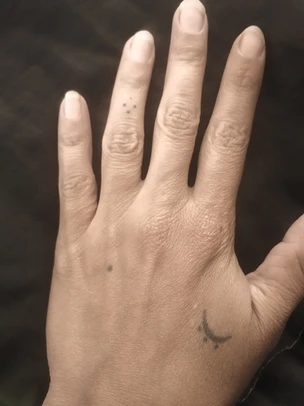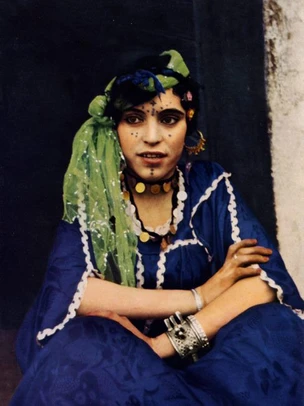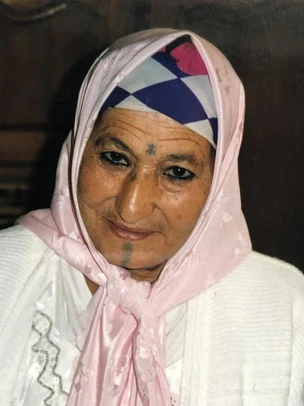
In this series of articles, we share your stories. Those of your families, your tattooed grandmothers and great-grandmothers. They sometimes told you about their tattoos, sometimes very little. This is why we want to collect your testimonies here. Transmit so as not to lose their history. Bringing their culture to life to make it timeless.
Dounia.
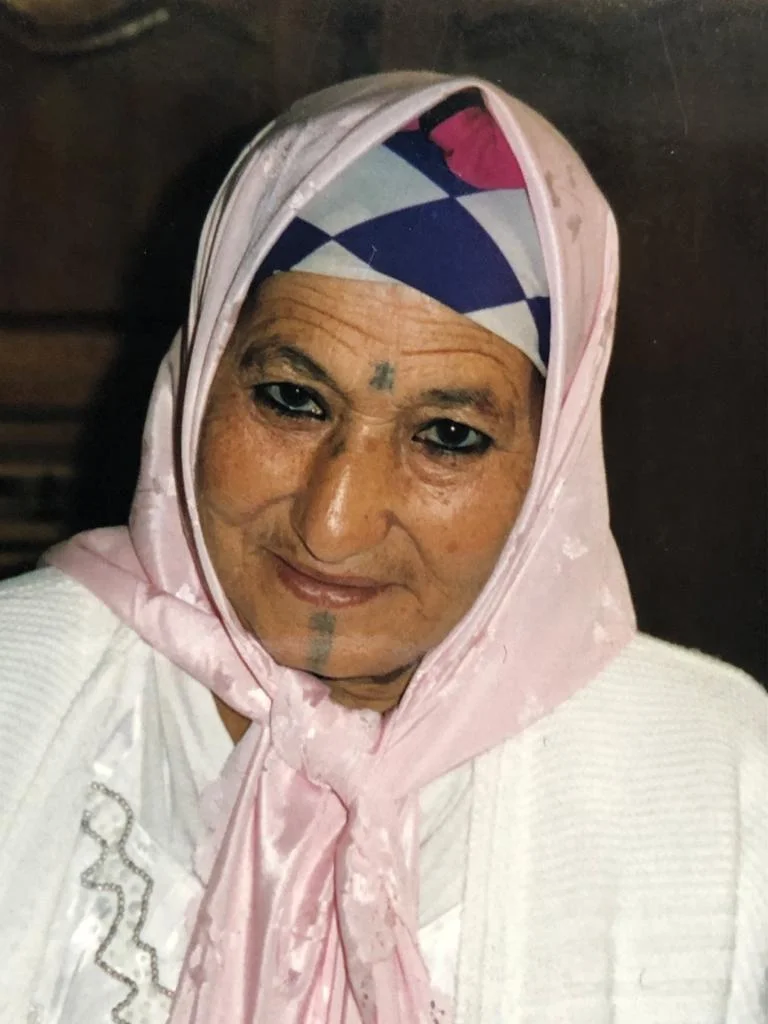
Let me introduce myself, my name is Dounia. I live in 91 and I grew up with my parents in 92. I am a mixed-race child, of a French mother and a Moroccan father. I work as a quality controller in aeronautics and space.
My grandmother was tattooed on several parts of the body, in particular the face: the forehead, the nose, the chin. I tried for a long time to find the meaning of her symbols, which she didn't tell me much about...

My grandmother is from a region called Aït Oulichek in the Rif mountains, in the province of Driouch. She then came to settle in Oujda in the small village of Koulouch.

My grandmother made me a lot of henna to protect me, to heal me, but also to sublimate me. I remember the good memories spent at the edge of wild beaches, eating tajines carefully prepared by my grandmother, in the middle of nature with almost nothing. We were also going to sink into a river called Zeg-zel in the middle of the mountains, with a breathtaking view. My grandmother left me her secrets and recipes specific to her and to my region. I still remember when she treated me with olive oil or verbena...
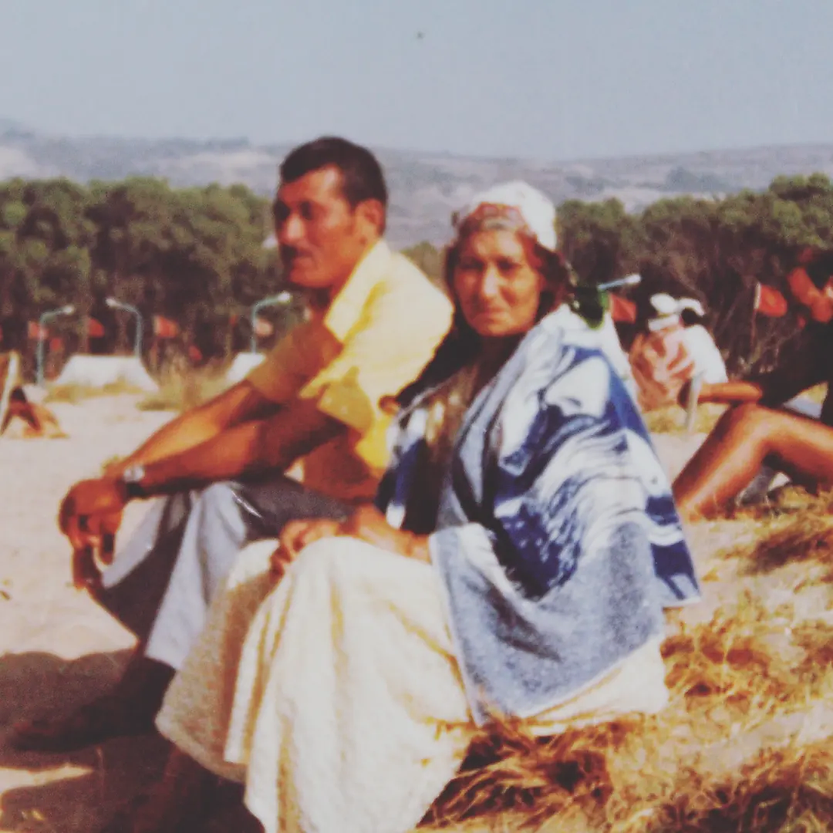
My grandmother and I were very close, may she rest in peace... I plan to get these famous Berber tattoos that she wore all her life as a tribute to her... Apparently her tattoos were a way to recognize each other between villages. The symbols were chosen by the husband and had the power to protect or bring what one desired. It was also for dressing, like a kind of lace or jewelry. My grandmother only speaks Berber.


